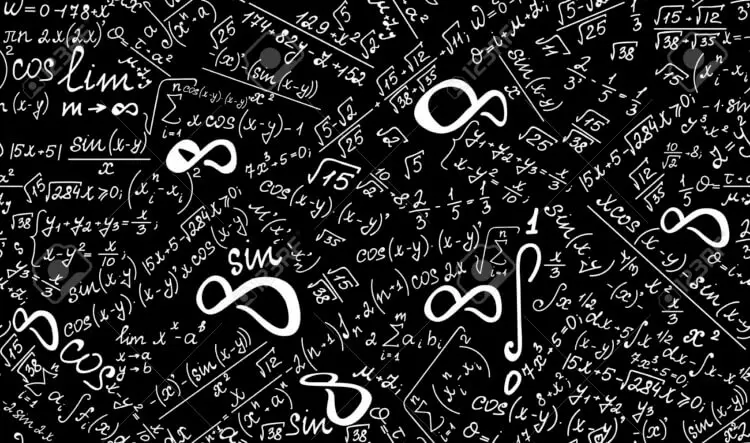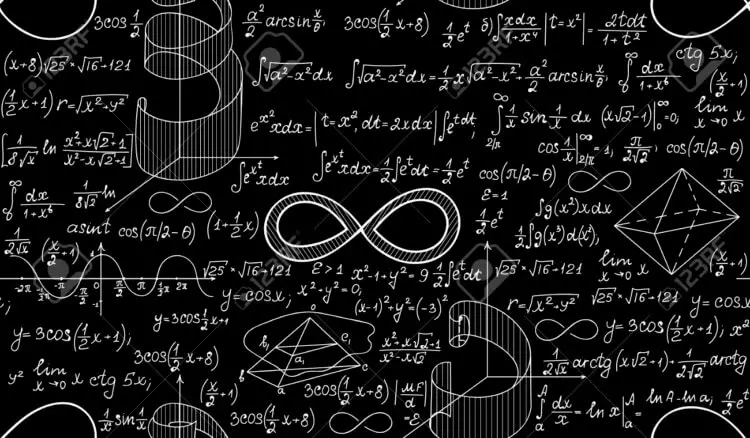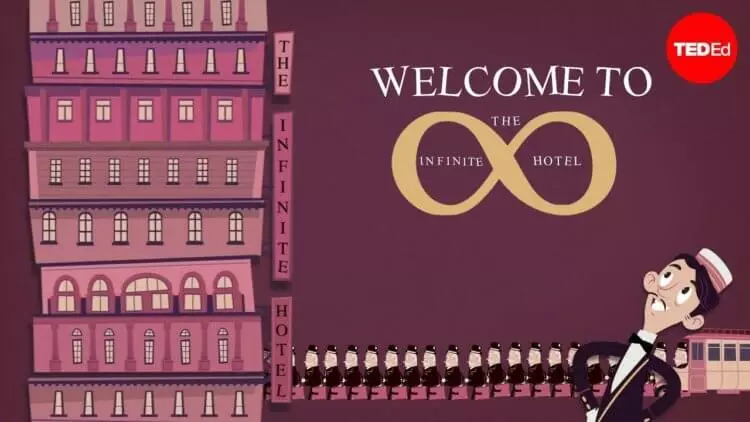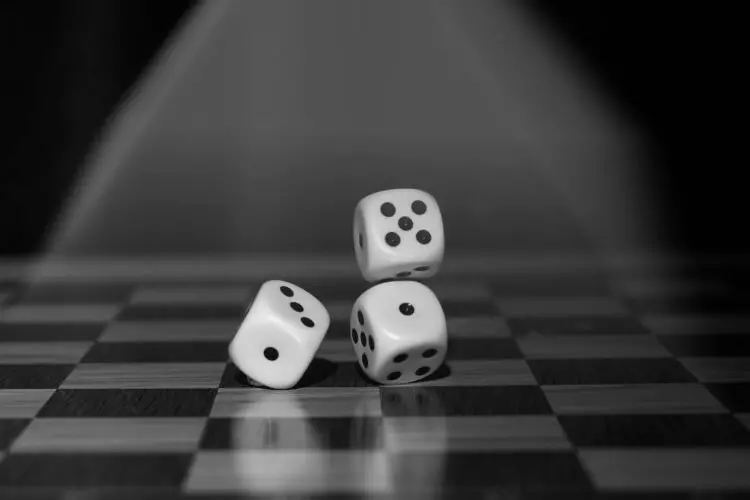Imagine that infinity seems to be impossible. However, mathematicians claim that this science gives a man a chance to be with infinity "on you." So, the mathematician Alexei Savvateyev calls mathematics through infinity. "The development of mathematics," he writes in his book, "this is when you become infinity of" on you. " And the more you "on you" with infinity, the better you understand mathematics. " To understand how scientists imagine mathematical infinity, let's consider the sequence of natural numbers 1, 2, 3, 4, ... which can potentially continue endlessly. Such continuous processes are usually the first examples of such a complex concept as infinity. Meanwhile, in mathematics, the processes that do not have a limit or the end point are found quite often, and the question of infinity itself goes with its roots in mathematics of ancient Greece.

History of infinity
The earliest reflections on mathematical infinity are probably the paradoxes of the Greek philosopher of Zenon. One of them (written in the fifth century to our era) and concerns Achilles, the fastest of all Greeks, which should run charming with a turtle. According to the paradox, the quick-legged Achilles will never catch up with a leisurely turtle if the turtle is in front of the Achilles.
Aristotle was also concerned about this and other riddles concerning endless divisibility. The universe, he thought, could not be infinitely big. If it were so, then her half would also be infinite. But what makes all the infinity more than half of her half? Apparently, nothing; They are both infinite, so there must be one size. But they can not be the same size, as one half is more different. Aristotle puts forward a number of other objections and comes to the conclusion that the universe should be final. Looking at the stars over himself, he comes to the conclusion that the cosmos consists of a huge (but finite) sphere from the ground in the center.

However, it cost Aristotle to suggest how someone asked what was on the other side of the sphere. Nevertheless, this idea liked people for more than a thousand years, which is generally not bad. In the third century BC, Archimeda counted how many sands will need to fill the Aristotle universe, and in the Middle Ages, St. Thomas Aquinsky supported Aristotle, and this look became the main for the Church.
Everything has changed when Nikolai Copernicus said that the land is not the center of the universe. Later in the seventeenth century, Galileo Galilee was recognized as a dangerous thinker, as it was openly reflected on infinity. The world is infinite, he considered it, and Matter is eternal. Many later, in the 1920s, the German mathematician David Hilbert came up with a famous mental experiment to show how difficult it is to realize the concept of infinity.
Want to always be aware of the latest news from the world of popular science and high technology? Subscribe to our Telegram Channel so as not to miss fresh news announcements!
Paradox of endless hotel
So, suppose you are a receptionist at the hotel under the symbolic name "Infinity". All the rooms of the hotel, which are infinite many, are full, but suddenly a new guest appears. Do not have to drive it? No, everything you need is to move the guest from the room 1 to the room 2, and the guest from the room 2 is in the room 3 and so on. Voila - the first room is now free for the new guest. But what if there will be an endless lot of new guests?
It turns out that you can still be kind. The tenants from the first room goes into room number 2, and the tenants from the second room goes into the room three and so on ... to infinity. Since the rooms have doubled rooms, and thus became even numbers, you can now put infinitely many new guests in (now free) odd numbers. Even numbers should be as much as numbers, since there is an infinite number of rooms, regardless of whether they are or odd. As a result, we can put all the numbers without a balance only in the "Rooms", occupied by even numbers. This mental experiment is known as the paradox of an endless hotel, which perfectly illustrates the properties of infinite sets.

According to the creator of the theory of sets, Mathematics Georg Kantor, there are many numbers, and this infinite number of numbers describes many types of numbers. For example, in paradox the number of numbers was the same as the number of even numbers (and odd numbers, and simple numbers, and multiple billions, etc.). Today it seems obvious, but was not apparent to Aristotle and his followers, who considered the actual infinity of an unacceptable scientific concept.
Set theory - section of mathematics, which studies the general properties of sets - the sets of elements of arbitrary nature, which have any common property.
Cantor also proved that the number of fractions is equal to this infinite number that he called Aleph Zero. The most remarkable thing he proved (with the help of the so-called diagonal argument), which exists more than one infinite number.

You will be interested: what proves the theorem of Poincare about return
The work of Kantor met considerable resistance, but finally won and now accepted almost everywhere. There is a tiny minority of mathematicians called intuionists or constructivists who do not believe that we can really understand the idea of infinite totality. In the twentieth century, philosophers were joined, who wondered about whether the cantorsky look could be understood into infinity. What do you think about this? Answers will be waiting here, as well as in the comments to this article.
